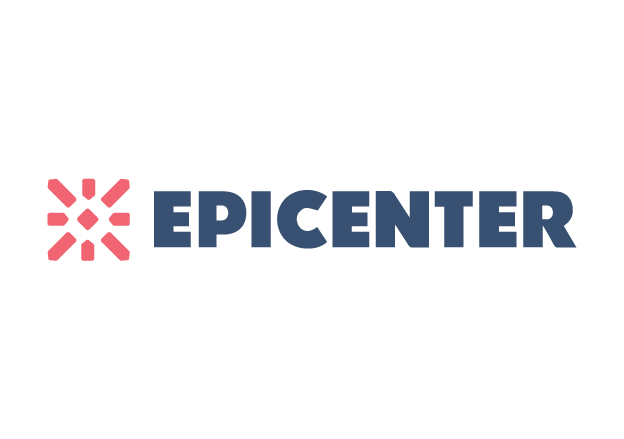Idicula Mathew, CEO of Hera Health
Idicula Mathew, CEO Hera Health
While researching as a biomedical engineering student at Georgia Tech, Idicula Mathew witnessed a number of birth control implant removal procedures. Complete with needles, scalpel, and incision, the removal process seemed arcane and overly invasive to Mathew. “I saw one removal and thought ‘okay, maybe this one was just really bad.’ And then I saw another one and realized it’s the same problem over and over again,” he says. “I got fed up with the idea that ‘this is the only product, you just have to deal with it.’ I never dreamed I would pursue entrepreneurship, but I couldn’t stop thinking there should be a better way.”
With that, Mathew began his senior design project. Alongside other students working on the project, Mathew became aware of degradable technologies and thought to utilize them for drug delivery. After discussing his idea with a business professor at the university, Mathew was encouraged to participate in Idea to Prototype, a Georgia Tech program offering undergraduate course credit while students research, build, and test product ideas to a proof-of-concept prototype. Ultimately, Mathew participated in Idea to Prototype three semesters in a row. “We didn’t end up with a fully functioning prototype at first,” he says. “So we kept going back, and toward the end we were able to successfully nanofiber spin an implantable product.”
Just as the prototype was developed, Mathew was set to graduate with an undergraduate degree in biomedical engineering and a minor in business management. Despite multiple job offers, Mathew felt called to pursue his technology. “My parents were like, ‘what are you doing? You’re not going to get a job?’ There were a lot of talks, a lot of arguments,” Mathew says. “But at the end of the day, they’ve been really supportive.”
Mathew pursued his company without funding or support for six months. “I was very motivated, but lacking direction,” he says. Remembering a company that had gone through an accelerator in Memphis during his freshman year at Georgia Tech, Mathew applied for the ZeroTo510 accelerator program at Memphis Bioworks. A week later, he got the call that he was accepted into the program and would receive $50,000 in startup capital to support his idea. “Money really does drive results,” Mathew says. “You need some fuel to do anything.”
Alongside co-founder Garrett Whitfield, Hera Health Solutions was launched. Throughout ZeroTo510, they learned how to de-risk their technology, how to commercialize a product, and delved into market potential and market need. However, Mathew attributes some of his success to other Memphis-based medical device entrepreneurs. “One of the biggest proponents of getting to this level was being in the same room as folks 5 to 10 years ahead of us,” he says. “Being able to talk with and get an understanding from people like SOMAVAC and SweetBio has been huge.”
Those same people are what keep Mathew in Memphis. “I know it sounds so cliche. ‘Ugh, this guy,’ right?,” he says with a laugh. “As much as capital is important, the access to the right people at the right time is crucial. The key to success is in this ecosystem, in sitting in front of people who are supportive. We saw how motivated and passionate people were to help companies. That’s what brought us here.” In December 2018, Hera Health was one of three companies to pitch to the Memphis Investment and Advisory Club (MIAC), a series of monthly angel investment events hosted by Epicenter that feature pitches from startups raising rounds in Memphis.
“The angel pitch event was a very friendly atmosphere,” Mathew says. “Sometimes, you hear about poorly managed or uncontrolled angel events where the startups feel uncomfortable. This was quite the opposite.” Angel investors who saw Mathew’s pitch at the December event have since committed to Hera Health’s current fundraising round. The MIAC events have helped to raise more than $1 million for startups since August 2018.
In addition to funding, Mathew said the experience helped him gain perspective. “I firmly believe in the value of new connections,” he says. “The opportunity to discuss your business with others in the community can bring on areas for improvement, new ideas, connections to new partnerships or even new customers. A novel perspective is an invaluable luxury.”
In addition to raising a round of funding from angels and venture capital firms, Hera Health is pursuing partnerships with nonprofit organizations that provide healthcare in developing nations. Among those nonprofit organizations are FHI 360, which seeks to provide innovative solutions to global human development challenges, including the delivery of healthcare. “We want to provide convenient and sustainable medicine regardless of where someone is in the world,” Mathew says. “Especially in developing nations, having implantable drug delivery that is long-acting without being invasive is very needed.”
What started as a senior design project (“We did get an A. Barely.”) has turned into a human-focused solution to reducing suffering in the delivery of birth control and other medications. As for Mathew, he remains excited about the journey and the opportunities ahead. “As a CEO, there is no task that isn’t your task,” he says. “I’m really humbled and honored to be accepted into this ecosystem and looking forward to what comes next.”


